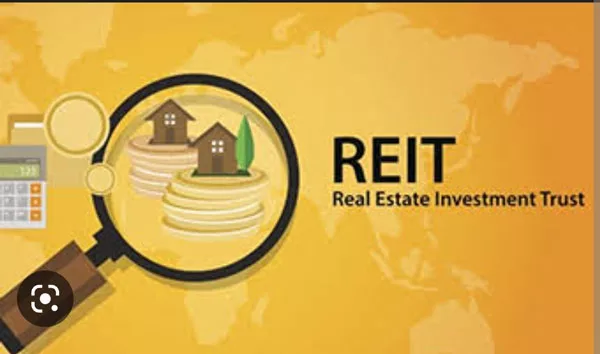Downsizing and Investing the Extra Cash: A Smart Move or a Misstep in Retirement?
Table of Contents
Introduction:
Ah, retirement! The golden years where you can kick back, relax, and… downsize? That’s right!
The concept of “Downsizing and investing the extra cash” has become the talk of the town in retirement circles.
But before you jump on the bandwagon, let’s dissect this trend. Is it the key to a lavish retirement or just another fad that’ll leave you yearning for your old home?
The Allure of Downsizing:
The idea of living in a smaller, cozier space has its charm. Imagine having fewer rooms to clean, less grass to mow, and not having to shout across the house to have a conversation. Sounds dreamy, right?
- Simpler Life: One of the biggest draws to downsizing is the promise of a simpler life. Fewer rooms mean less clutter, less maintenance, and more time to enjoy the things you love. Plus, think of all the unnecessary items you’ve accumulated over the years. Downsizing can be the perfect excuse to declutter and live minimally.
- Financial Freedom: Then there’s the financial aspect. Selling a larger home can free up a significant chunk of change. This extra cash can be invested, saved, or even splurged on that world cruise you’ve always dreamt of.
Why Some Think Downsizing in Retirement Might Be a Terrible Idea:
However, like all things in life, downsizing isn’t all rainbows and butterflies.
- Emotional Attachments: Leaving behind a family home filled with memories can be emotionally challenging. Every corner of the house tells a story, from the crayon marks on the walls to the treehouse in the backyard.
- The Costs of Moving: Financially, moving isn’t cheap. There are realtor fees, moving trucks, and other expenses. Plus, if you’re thinking of buying a new place, there are closing costs, taxes, and potential renovation expenses.
- Adjusting to a Smaller Space: And let’s not forget the challenge of adjusting to a smaller space. It might mean parting with cherished items or feeling a bit cramped.
The Unexpected Benefits of Downsizing Your Home:
But it’s not all doom and gloom. There are some unexpected perks to downsizing.
- A Fresh Start: A new environment can bring a fresh perspective. It’s a chance to redecorate, make new memories, and maybe even pick up a new hobby or two.
- Opportunities to Create New Memories: Exploring a new neighborhood can be an adventure. From new parks to local cafes, there’s a whole world out there waiting to be discovered.
- Lower Utility Bills: A smaller space often translates to smaller utility bills. Less square footage means less space to heat or cool, which can lead to significant savings.
Downsizing House to Save Money:
The financial benefits of downsizing can be substantial.
- The Math Behind It: Let’s say you sell your home and walk away with an extra $100,000. That’s a hefty sum that can be invested, earning you passive income for years to come.
- Investing the Extra Cash: With the extra cash, you have options. You could dive into the stock market, explore bonds, or even consider real estate investments. The key is to diversify and ensure your money is working for you.
- Paying Off Debts: For many, this extra cash can be a ticket to becoming debt-free. Imagine no more monthly mortgage payments or credit card bills. Pure bliss!
Should I Downsize My Home and Pay Off Mortgage?:
This is a question many retirees grapple with. On one hand, the idea of being mortgage-free is tempting.
But on the other, there’s the potential loss of a tax deduction and the risk of tying up most of your liquidity in a home.
Investing the Extra Cash – The Smart Way:
If you do decide to downsize, it’s essential to invest wisely.
- Diversifying Your Portfolio: Don’t put all your eggs in one basket. Spread your investments across various avenues to minimize risk.
- Seeking Professional Advice: A financial advisor can provide valuable insights, helping you make informed decisions.
- Keeping an Eye on the Market: Stay updated with market trends. This will allow you to adjust your investments accordingly, ensuring maximum returns.
Conclusion:
Downsizing and investing the extra cash can be a game-changer for many retirees. However, it’s essential to weigh the pros and cons, consider your emotional well-being, and make an informed decision.
After all, retirement is about enjoying your golden years, whether in a sprawling mansion or a cozy condo.
So, before you make the leap, do your homework, consult with loved ones, and choose what’s best for you. Happy downsizing (or not)!
Frequently Asked Questions
What are the main reasons people consider downsizing in retirement?
Many retirees consider downsizing to simplify their lives, reduce maintenance responsibilities, and free up funds for investment or other purposes. A smaller home often means fewer expenses and can provide a fresh start in a new environment.
How can I determine if downsizing is right for me?
Consider your current and future financial needs, the emotional attachment to your home, the costs associated with moving, and your lifestyle preferences. Consulting with a financial advisor or counselor can also provide clarity.
Are there any hidden costs associated with downsizing?
Yes, while downsizing can free up funds, there are costs to consider, such as realtor fees, moving expenses, closing costs for a new property, and potential renovation or decoration expenses for the new place.
How can I invest the extra cash from downsizing wisely?
Diversifying your investments is crucial. Consider a mix of stocks, bonds, and other investment opportunities. It’s also advisable to consult with a financial advisor to tailor your investments to your financial goals.
What are the emotional challenges of downsizing?
Leaving a family home filled with memories can be emotionally challenging. Adjusting to a new neighborhood and parting with cherished items due to space constraints can also be difficult.
How can downsizing benefit my financial health in retirement?
Downsizing can provide a significant lump sum from the sale of your larger home. This money can be invested, saved, or used to pay off debts. Additionally, a smaller home often means reduced utility bills and maintenance costs.
Is it better to rent or buy after downsizing?
Both options have their pros and cons. Renting offers flexibility, while buying can be an investment. Consider factors like the property market trends, your financial situation, and your long-term plans before deciding.
How can I ensure a smooth transition when downsizing?
Declutter and decide what to keep, sell, or donate. Research your new location, consider hiring professional movers, and give yourself time to adjust to your new environment.
Are there any tax implications when selling my home and downsizing?
Yes, there can be tax implications depending on the profit from the sale and how long you’ve owned and lived in the house. It’s essential to consult with a tax professional to understand any potential tax liabilities.
How can I make my new, smaller space feel like home?
Personalize your space with cherished items, photographs, and decor. Consider smart storage solutions to maximize space. Engage with your new community and explore local activities to feel connected and settled.
What if I regret my decision to downsize?
It’s natural to have reservations or even regrets. Give yourself time to adjust. If, after a while, you still feel it wasn’t the right decision, you can always consider moving again or exploring other housing options.
How can I protect myself from potential scams when selling my home?
Always work with reputable real estate agents, be wary of offers that seem too good to be true, and never rush into a sale. Do your research and trust your instincts.




